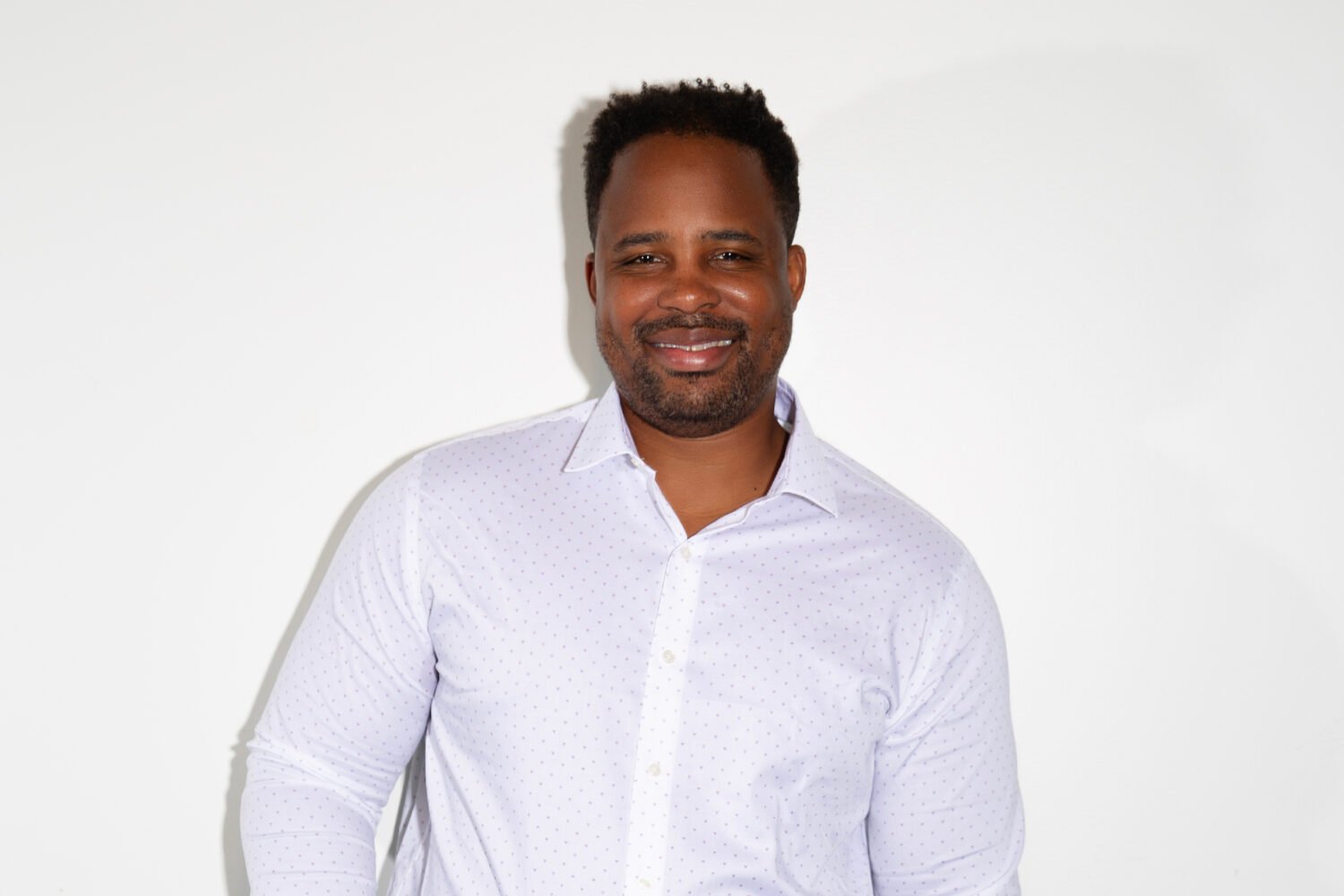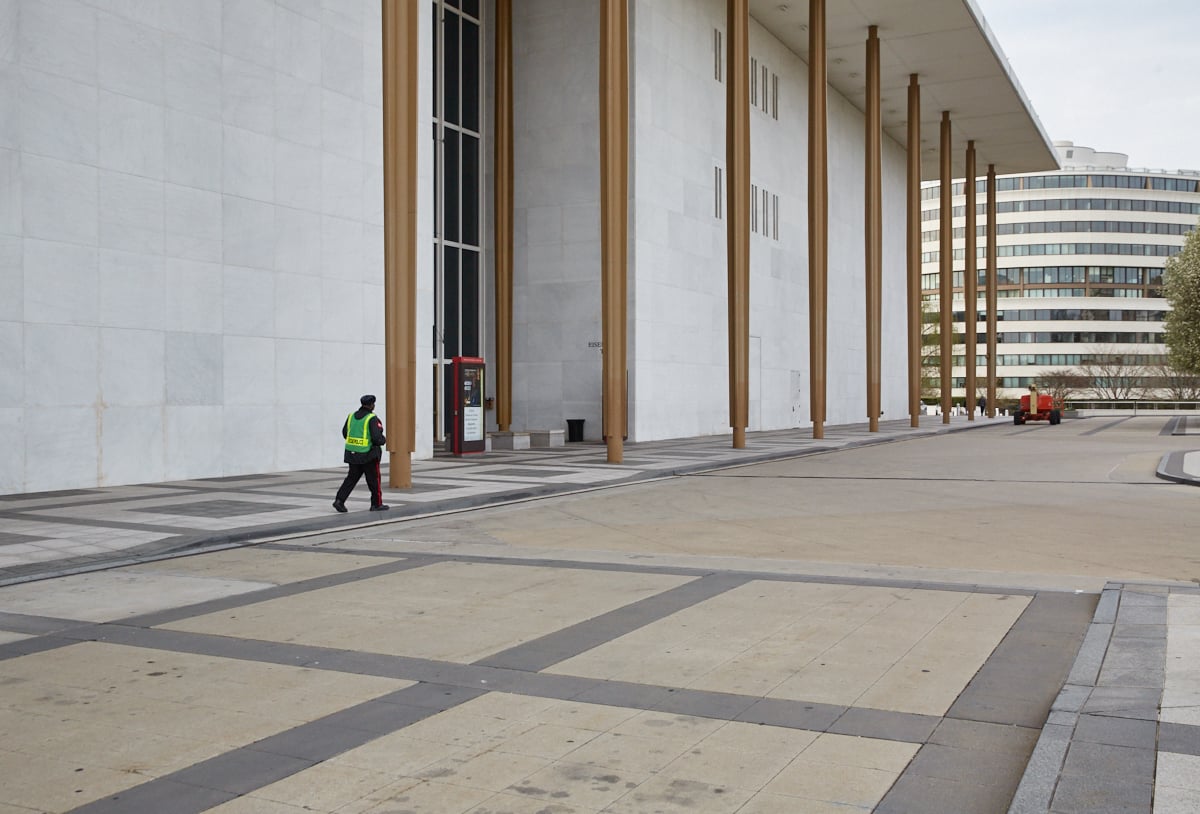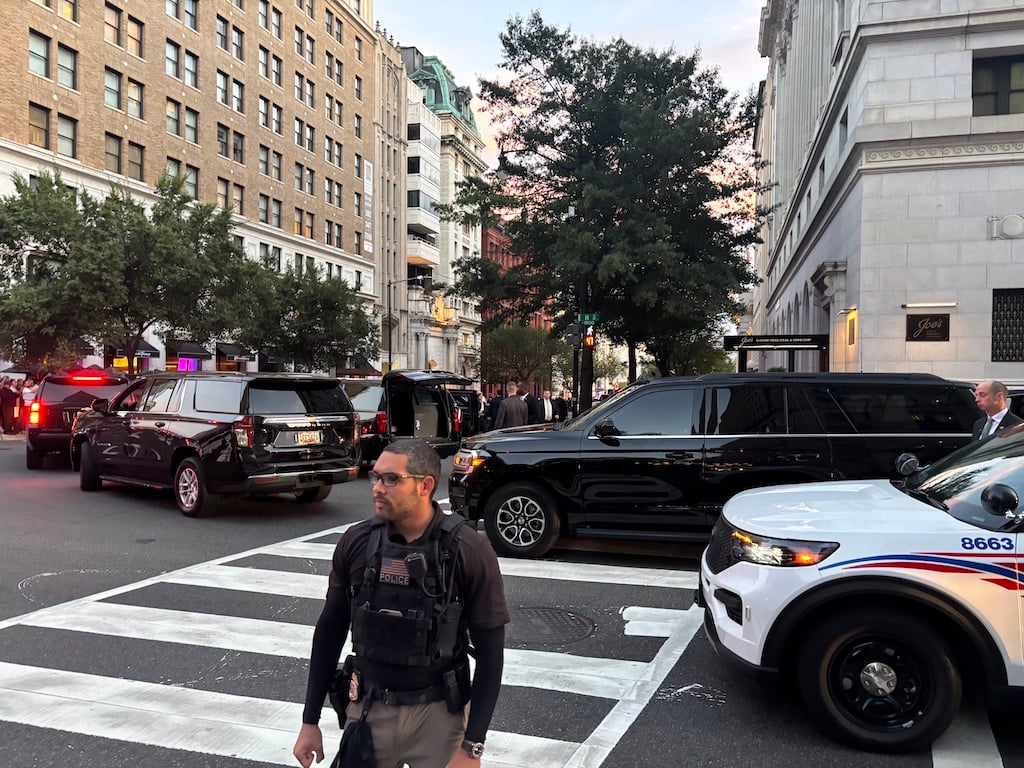By Barbara Matuswo
In its 200 years, it's safe to say that St. Patrick's Catholic Church had never seen a ceremony quite like it. The man bowing his head over the baptismal font, about to be received into the Church, was Bob Novak, the man often called "the Prince of Darkness."
At his side were his godmother, editor Kate O'Beirne, and his godfather, Jeff Bell, a former Ronald Reagan staffer, watching as a priest sprinkled Novak with holy water and anointed him with oils.
Many of the invited guests were recognizable, among them media heavies Al Hunt, Judy Woodruff, Fred Barnes, and Margaret Carlson, New York Senator Daniel Patrick Moynihan, Representative Henry Hyde, and Pennsylvania Senator Rick Santorum.
The priests officiating were well known, too. Monsignor Peter Vaghi, the pastor of St. Patrick's, is said to have ambitions to be a cardinal. Father C. John McCloskey III is an author and television personality who has revitalized the Catholic Information Center in Washington.
"During Bob's baptism, I was looking out from where I was standing," says McCloskey, "and it looked like a Who's Who of political and journalistic Washington. I found it very moving–here were all his friends, seeing this adult come into grace, bowing his head to receive the sacramental waters of baptism. Many of them had tears in their eyes."
The ceremony, in May 1998, was mostly a solemn affair. In the course of it, Novak, then 67, was baptized, confirmed, and received his first Holy Communion. "It was an exhilarating experience," he says, "one of the great moments of my life. I thought I was in a different dimension."
The solemnity lifted for a moment when Monsignor Vaghi said how privileged they were to witness the transformation of the "prince of darkness" into a "child of light."
After the ceremony, Senator Moynihan quipped, "Well, we've now made Bob a Catholic. The question is, can we make him a Christian?"
I T WAS A CLEVER REMARK. EVERYBODY LAUGHED WHEN IT MADE THE ROUNDS AT the reception at the Novaks' apartment. But even Bob Novak's good friends have wondered how he reconciles his Darwinian, take-no-prisoners conservatism with the biblical injunction to help the poor and the oppressed.
This is, after all, a man who once said on CNN's The Capital Gang that his Thanksgiving dinner had been ruined by the sight of so many homeless people shown on TV that day.
"It was a little tongue-in-cheek," Novak admits. But he'll be the first to tell you that his views on cutting taxes, shrinking government, and eliminating the welfare state have not changed since he made a turn to the right in the late 1970s. "If anything, I've moved further to the right," he says, "although some people wonder if there's any room at that end of the spectrum."
Novak also has embraced the most conservative interpretations of Catholicism, taking a firm stand against matters like divorce, the ordination of women, and abortion, no matter what the circumstances. He doesn't approve of "left-wing activists" within the church who engage in "overturning governments." Nor does he take kindly to innovations in the liturgy. *
"Once my wife and I were in Palm Beach and we went to Mass there," he says. "It was horrible–all that rock music, singing, and swaying. I said at the time that if this had been my introduction to Catholicism, I would have never converted. Of course the Holy Spirit probably would have made sure it wasn't my first exposure."
NOVAK'S FIRST TASTE OF Catholicism came in the early 1980s, when he nearly died from spinal meningitis–the first of three life-threatening illnesses he would face over the next 15 years. He was at home recuperating when Jeff Bell, a source who had become a friend, brought him books about the Catholic faith.
"He attributes what I did to my thinking that he was not too long for this world," says Bell. "Maybe that was in the back of my mind. But I knew him as a guy who devoured books of any kind and who had an open mind. He was hostile to Reagan and supply-side economics when I first met him. Then he became a devotee."
Novak, raised in a Jewish family, had flirted with Christianity before. He attended Unitarian services during an earlier marriage. In 1962, he married his current wife, Geraldine, a Methodist, and they went to an Episcopal church near their home on Capitol Hill. Their first child, Zelda, was baptized there.
But they didn't attend for long because Bob couldn't stand the minister. "The guy was so political," he says. "I didn't feel like sitting there listening to anti-Vietnam War screeds from the pulpit."
Earlier, in the 1950s, when he was a second lieutenant in the US Army, he discovered spiritual inspiration in Witness, a memoir written by the fiercely anti-Communist Whittaker Chambers. "It changed my worldview, my philosophical perceptions, and, without exaggeration, my life," Novak writes in the foreword to the latest edition of Witness.
The book, which charts Chambers's journey from godless Communist to mystical Christian, describes a world locked in an epochal struggle between Communism and freedom–a battle Chambers said the degenerate West would lose because it had turned its back on God.
At the time, Novak says, he was expecting to be sent to Korea, where he was sure he would be killed. He found comfort in the book's moral absolutes. While it made him a raging anti-Communist, he says it also left him conscious of a spiritual void he didn't know how to fill.
"The book really convinced me that to reject God was a huge mistake and was folly," he says. "So I was a believer. But I was unchurched. I wasn't a Christian."
NOVAK'S PARENTS WERE SECULAR JEWS WHO ATTENDED synagogue on high holy days but were not otherwise part of the small Jewish community in Joliet, Illinois. "Everybody thought they were Polish instead of Jewish," says Novak's cousin Lucille Blass, whose family was observant. His parents did see to it that he went to Hebrew school and had his bar mitzvah, but the rabbi's teachings never took.
"I was not drawn to Judaism at all," Novak says. "I found the same thing in Judaism as a young boy as I did later in the Unitarian church and then at the Episcopal church. They seemed very ungodly. The clergymen seemed very secular."
Novak didn't really deny his heritage; in college he joined a Jewish fraternity. He simply wasn't interested in Judaism as a religion or an ethnic orientation. His grandparents were refugees from Eastern Europe who settled in Illinois and brought up their children to be ambitious and hard-working. Bob's father, Maurice, a distinguished-looking man with a degree in engineering, became an executive at the local gas company. His mother, Jane, was a live wire who loved cooking for housefuls of relatives.
"It was always an enchanting experience to be at their house," recalls Lucille Blass. "It had crystal doorknobs and beautifully stained hardwood floors, and this was during the Depression. And oh, the food Aunt Jane cooked. I remember she always gave us a choice of three desserts."
Jane seldom let her gaze stray far from her only child, young Bobby, a devilish boy who delighted in all the attention he got from the aunts, uncles, grandparents, and nine older girl cousins. He suffered from chronic bronchitis when he was small, and Jane, who worried constantly about his health, often drove the boy the two blocks from their home to school. "Baby Jesus," his cousins took to calling him when she wasn't around.
He seems to have led pretty much a charmed boyhood except for his clumsiness at sports. He tried all of them, he recounts ruefully, but was no good at any: "It was kind of humiliating, because my father and my uncles were all good athletes."
He found other ways to attract attention, displaying an early desire to shock and titillate. "He loved to say outrageous things, even when he was quite little" recalls Blass. "He would tease us about the bumps growing under our T-shirts. Or he would ask, 'Would you rather be crushed by a boa constrictor or torn to pieces by a lion?' " It was harmless enough, even funny, but there was often a dark vein running through his jokes.
"I like to cause trouble and stir up strife," Novak acknowledges, flashing his demonic grin. "In the Dark Ages, there was a French nobleman named Bertrand de Born who really stirred up strife. He raided other people's castles, killed, and caused tumult. In The Inferno, Dante places Bertrand de Born at the door to Purgatory, with his severed head in his hand, where he is condemned to stand for all eternity because in life he was a stirrer-up of strife. Bertrand de Born has been my idol ever since I read about him as an English-literature major in college."
IN JOURNALISM, NOVAK FOUND PLENTY OF WAYS TO STIR UP strife. From the time he was 26, when he first came to Washington, he broke one story after another while covering Congress–first for the AP, then at the Wall Street Journal. "He was a dynamo," says Paul Duke, a longtime print and broadcast reporter who worked with Novak at the Journal. "He had the best grasp of politics of anyone I've ever worked with."
In those days, Novak seldom took a note or used a tape recorder. "I used to be able to interview someone for half an hour and repeat verbatim what was said," he says. "My memory is not quite that good anymore."
Novak's stock in trade, then as now, was ferreting out what went on behind closed doors. He got so absorbed in his work that he would sometimes show up at the office without remembering to shave.
"He was completely slovenly," recalls Alan Otten, another Wall Street Journal alumnus. "His parents used to send him suits twice a year from a store in Joliet that had his measurements. Instead of taking them home, he would stack them up under the desk until he had four or five under there, along with food packets they had sent him."
Novak was so absent-minded that he was dangerous. "You couldn't smoke inside the House chamber, so people used to park their cigarettes outside," recalls Otten. "Bob would put his in his pocket and forget they were there. He had holes in every jacket he owned."
Novak was known for saying startling things to people. There was, for instance, the time he saw columnist Jules Witcover, who appeared to Novak to have lost weight. "What's the matter? Do you have cancer?" Novak asked.
Between his saturnine countenance and his gloomy worldview, it's not surprising that people took to calling him "the Prince of Darkness."
Nonetheless, Novak made friends easily. He formed close ties to people he covered in the Senate, people like Everett Dirksen and Lyndon Johnson. When Johnson was vice president, he threw a wedding reception at his home in Spring Valley for Bob and Geraldine, who worked in the vice president's office.
It was Rowland Evans, then a congressional correspondent for the New York Herald-Tribune, who set Novak on the road to riches and fame.
In 1963, Evans was about to start a six-day-a-week column for the Herald-Tribune, and he was looking for a partner to share the load. "Rowley looked around and thought about who was the hardest-working person he knew," says Evans's widow, Kay. "He didn't really know Bob at the time, but he had watched him in the Senate and decided that was his man."
The two were an unlikely pair–the short, paunchy Novak, who walked around with his shoelaces untied, versus the suave, patrician Evans, who looked and acted like a diplomat. Evans generally wrote the foreign-affairs stories in the column. Novak handled politics and domestic affairs. Their formula, lacing good reporting with opinion, made their column a success for 30 years.
"When Rowley and I first started, we decided that in every column, we would have something that had never been printed before," says Novak. "We followed that rule for 30 years. I still follow it. Sometimes it is some little triviality, the kind of story that creates a sensation in Washington for 24 hours and then you wipe the garbage up with it. But I just loved those kind of stories when I was a young reporter, and I love them now."
OMETIMES THE PAIR INFLATED THEIR scoops; Novak still does. And they made more than their share of mistakes over the years, earning them the nickname "Errors and No Facts." Still, they dug up so much inside dope and had such a prominent perch on the opinion page of the Washington Post that they became must-reading, particularly in Republican circles, where they had their best sources.
In the early days, the column was not all that ideological. Evans started out as a moderately liberal Democrat, while Novak describes himself as a middle-of-the-road Rockefeller Republican. Both were staunch anti-Communists who favored the war in Vietnam, along with most members of the Washington establishment. In his social and cultural beliefs, Novak was already deeply conservative. It was no doubt his influence that made the column so vitriolic toward George McGovern, the 1972 Democratic presidential nominee, saddling his candidacy with the widely repeated description "acid, amnesty, and abortion."
In the '80s, Evans and Novak completed their journey to the far right. As devotees of Ronald Reagan, they hammered away on behalf of supply-side economics and a militant foreign policy. Yet they were never slavishly Republican and didn't hesitate to criticize Republican presidents or the GOP, particularly if they felt conservative principles were being sacrificed.
Their political conversion coincided with the expansion of cable television and a bull market for conservative pundits–the harder-edged the better. Evans and Novak got a berth on CNN interviewing newsmakers, and in 1982, Novak became a regular on The McLaughlin Group.
Dubbed "the first samurai talk show" by Post critic Tom Shales, the program featured journalists yelling at one another. It undoubtedly coarsened the debate over important issues, but it made a big splash. Even people who said they hated it watched. McLaughlin, a former priest and onetime Nixon staffer, set the tone, calling fellow panelists "weenie" or "wimp" and bellowing at them to rate world events "on a scale of one to ten."
The other panelists played along, but Novak went the farthest, playing "a beer-guzzling, middle-class construction worker whose idea of a good time was to sic his German Shepherd on welfare queens and pinko student demonstrators," as Eric Alterman describes him in the book Sound and Fury: The Washington Punditocracy and the Collapse of American Politics.
This Novak was a surprise to his friends. "There's Bob Novak on TV and Bob Novak in real life," says Kay Evans. "They are totally different. I never saw him carry on like that."
After friction between him and McLaughlin drove him off the show, Novak got his own show on CNN–The Capital Gang–where he perfected his misanthropic persona. "That's the stupidest question I've ever heard," he told Mark Shields, even though Novak, as producer of the show, had written the question for Shields.
But outrageousness plays well on American radio and TV. Novak, who is nothing if not self-aware, knew what he was doing. With his column, television appearances, speeches, and the lucrative forums he holds for CEOs twice a year in Washington, he was not only becoming ubiquitous; he also was getting rich. Still, he acknowledges he felt something was missing.
SOMETIME IN THE EARLY 1990S, AFTER he and Geraldine moved to downtown DC from their house in Rockville, they started going to church again. Geraldine took the lead.
A shy, impeccably dressed woman of few words, Geraldine has been wife, mother, and handyman to Novak for 40 years. She buys his suits and shoes, keeps the books, and, before they moved back to DC, shoveled the walks and took out the trash.
"I haven't been in a grocery store in 25 years," Novak likes to brag.
Geraldine tried a number of nearby churches and finally settled on historic St. Patrick's, one of the oldest Catholic parishes in the city. After a while, she asked Bob to go with her. Like her, he found himself attracted by the beauty of the liturgy as well as by the pastor, Monsignor Vaghi, whom he already knew. Before entering the priesthood, Vaghi had worked on the Hill for Senator Pete Domenici, where he was a source for Evans and Novak, although Evans knew him better.
"I liked his homilies," Novak says. "They were dealing with matters of faith rather than politics."
The turning point came a few years later at a speaking engagement arranged by the conservative club at Syracuse University. Novak fell into conversation with a young woman who was wearing a large crucifix.
"She asked me if I was a Catholic," Novak recalls. "I said 'no' but told her I had been going to Mass for several years. When she heard I wasn't planning to convert, she told me that in this world, life is short, but eternity was forever. It chilled me. I honestly thought it was the Holy Spirit speaking to me."
WHEN BOB GOT HOME AND TOLD Geraldine, they decided it was time to convert. Geraldine entered a class for converts, but Bob wanted private instruction, which he received from Monsignor Vaghi and Father McCloskey. The main problem was Novak's degree of belief.
"You have to believe that the communion wafer is the body of Christ. It's not a symbol. It's the actual body," he says. "If you don't believe that, you can't be a Catholic. It's the same with the Resurrection and the Holy Trinity. But there has to be a spiritual experience for belief to take place. Faith has to come to you. You have to pray for it, and that takes a long time."
Novak found it easy to relate to his instructors. The personable Vaghi, who comes from a prominent local Italian-American family, is, like Novak, a political animal who knows how to get things done. If an Italian organization wants to get Supreme Court Justice Antonin Scalia as its dinner speaker, for example, Vaghi is the go-to guy. McCloskey is another man on the move who also happens to be an expert in conversions. "He's a closer," says Jeff Bell, also a convert to Catholicism. "He gets to the heart of the issues and doesn't fool around."
Among the high-profile individuals McCloskey has shepherded into the Church are Kansas senator Sam Brownback, economist Lawrence Kudlow, former New York gubernatorial candidate Lew Lehrman, and former abortion provider Bernard Nathanson.
Conversions of famous people are not very common, and they are rarer still among Jews, who have historically resisted converting. "It took courage to do what Bob did," says McCloskey. "It's not the fashionable thing to do. It's countercultural." *
ONE RISK FOR NOVAK WAS THE PROBABILITY THAT HIS columns would be scrutinized for religious influences, particularly because he was already viewed in some quarters as too friendly to the Arab cause. The roots of his views on the Middle East go back to the trip Evans took to cover the Six-Day War in 1967. He returned convinced there was a Palestinian side to the story–a view their column began to reflect.
"I think Rowley brought Bob around to his point of view on the Middle East," says Kay Evans. "It cost them a lot. They lost some papers because of pressure from the Israeli government and certain Jewish organizations. But Bob never complained."
Rowley retired from the column in 1993, eight years before his death, but Novak, writing on his own, has continued to criticize Israel, in particular Prime Minister Ariel Sharon and his Likud party, drawing a lot of angry mail.
"They'll write to say, 'Take this guy off the air.' Or 'Stop using his column,' " says Novak. "I try to understand the reaction, particularly since I'm of Jewish background–that Israel is so important to Jewish people and its preservation is so vital that they find it intolerable for it to be criticized in a public forum. But it's the kind of criticism I don't get on any other issue."
Novak stirred up a storm of controversy a few years ago, when he suggested that the Republican party and Louis Farrakhan, widely regarded as anti-Semitic, might make common cause together. His recent stand against the Iraqi war, citing Israel's desire to see Saddam Hussein ousted as a major reason America was going to war, kicked up a fuss.
Writing in the National Review in March, former Bush speechwriter David Frum took aim at conservative critics of the war against Iraq, lumping Novak and Pat Buchanan together with some rabid racists and anti-Semites, most virtual unknowns, labeling them all defeatists who want America to lose the war.
"They began by hating the neoconservatives," Frum wrote. "They came to hate their party and this president. They have finished by hating their country."
Frum singled out Novak as one of the first people to blame Israel for the 9/11 terrorist attacks. "His column of September 13, 2001, written the very day after the terrorist attack, charged that 'the hatred toward the United States today by the terrorists is an extension of [their] hatred of Israel.' Novak lamented that, because of terror, the United States and Israel are brought ever closer in a way that cannot improve long-term U.S. policy objectives."
Novak, who has opposed all wars since Vietnam except for the invasion of Grenada, responds, "Anybody who has ever read my work or listened to me knows that all of his charges are untrue. Obviously when the accusations are made in a very prestigious and prominent journal of opinion, it's an attempt to silence people regarded as conservatives, particularly me, who do not agree with positions the administration has taken on some aspects of foreign policy."
Frum's critique was hardly fair, even McCarthyesque, as regards Novak; several fellow journalists wrote columns or articles in his defense. But detractors point out that turnabout is fair play. "I must say, I don't lose much sleep over this, given Novak's history of employing far more egregious and malicious charges at those he deems to be insufficiently patriotic and chauvinistic," says media critic Eric Alterman. "Witness the unconscionable smearing of my late friend Izzy Stone, whom he called a traitor and a spy."
NOVAK IS RETICENT TO DISCUSS WHAT PART Catholicism plays in his life today. "I pray privately. I confess, although at my age, I don't have that much to confess. What else? I can only tell you it's an important part of my life."
If his conversion has mellowed him, it's hard to tell. One day, while I was interviewing him at his office, he directed my attention to a photo of himself and former Republican National Committee chief Haley Barbour, pointing out the inscription, which reads, "To Robert Novak, whose TV charm is only exceeded by his party loyalty."
"He wrote that right after he learned that I had registered to vote Democratic in the District," Novak explained.
"You did," I asked. "Why?"
"I did it because I wanted to vote for Marion Barry in the primary in 1994," he replied. "I wanted him to win because it would undermine home rule, kill statehood, and increase congressional oversight. And," he concluded with a satisfied smile, "that's exactly what happened."
There is a chance that Novak was putting me on, but even his most strident statements give some indication of his thinking. What is striking is the man's self-confidence–the fact that he would say such an implicitly racist thing, knowing it would be printed, and apparently not caring. Maybe it's because he's always been so fortunate.
He has an enviable family life, centered around his wife, his two children, and seven grandchildren, all under the age of seven, who gather frequently at the Novaks' posh Pennsylvania Avenue apartment or at their summer home on Delaware's Fenwick Island. An adoring grandpa, Novak is quick to pull out pictures of the grandkids, but he doesn't exactly get down on all fours to play with them. "Was it Aldous Huxley who said children would be better off if they were hatched from an egg at 21?" he says. "I have a tendency to believe that. I enjoyed my own kids much more once they were grown."
His children have done well for themselves. Zelda is a Republican activist who worked on Jack Kemp's presidential campaign and backgrounded domestic and political issues in Vice President Quayle's office. Her husband, editor Chris Caldwell, is a rising star at the Weekly Standard. Son Alexander, who married a Catholic and converted to Catholicism before his father did, is marketing director of Eagle Publishing, a leading conservative publisher.
NOVAK STILL MANAGES to be treated like a princeling, with family, friends, and staff hovering in attendance. "When you travel with him, you're responsible for making sure he doesn't leave his cell phone on the plane or his computer in the overhead," says Kate O'Beirne. "In airports, he's curt, and he walks very rapidly, and when somebody asks, 'Isn't that Bob Novak?' it's my job to stop and say, 'Yes, it is.' "
At the Gridiron Club, he lets it be known that he won't participate in the big annual show unless he gets a prominent part, even though he can't sing. The club always finds him a juicy speaking role.
At CNN, he insists on the right to attend the Maryland Terrapins' away games. This means that on nights when a game conflicts with The Capital Gang, the network has to beam him in live from wherever the team is playing.
As extreme about sports as he is about everything else, Novak is virtually the Terps' team mascot, flying back and forth with the basketball players on their plane. At games, he and Geraldine both wear red Terrapins sweaters. And recently, he's been sporting a gold collegiate-style ring that says NCAA CHAMPIONS, which he won last year for being the only fan who went to all of the Terps' 33 games–both home and away.
He also follows the Redskins and the Orioles. At O's games, you're likely to find him in the stands, hunched over his stat book, writing down all the plays.
Sports are his only real diversion. When he's not watching a game or reading a book, he works. In addition to the column, which he writes three times a week for the Chicago Sun-Times, he puts out a newsletter of inside political dope, gives dozens of paid speeches, and is always available to write a book review or an article for publications like the Weekly Standard, the National Review, and Crisis, a conservative Catholic publication. Sometimes, Geraldine says, he will stay up all night to meet a deadline.
AS FOR TELEVISION, HE MAY NEVER GET ENOUGH exposure to suit him. A couple of years ago, when Fox made a run at him, Novak was able to use the offer as leverage to get a regular slot, averaging twice a week, on Crossfire, which had been using him as a backup cohost. Recently he signed another three-year contract, and he has told people that as long as the network keeps offering him new contracts, he'll sign them.
"Why do you run so hard?" I ask him. "There are lots of reasons," he says. "In the first place, I don't play golf. I don't play bridge or gamble anymore. I drink very little. The only outside activity I have is sports. Secondly, my father, who was in excellent health, was forcibly retired at 65. After that, his health and energy began to sap. I got a strong intimation that retirement is not beneficial to a person who is not a hobbyist."
Besides, he is still capable of stirring up plenty of strife. A couple of months ago, he wrote a column saying that Defense Secretary Donald Rumsfeld wanted then-Army Secretary Thomas White out and that White had nearly been fired the week before. A story in the next day's Los Angeles Times reported that White was "apoplectic" after reading the piece.
"I love it," Novak says, practically jumping up and down with glee. "I just love it. I'm a Christian now, but I still have some bad traits."
The Essential Novak
BORN February 26, 1931, in Joliet, Illinois.
FIRST PAYING NEWSPAPER JOB: While in high school, he edited a sports page for the Joliet Herald-News for ten cents a column inch.
GRADUATED from the University of Illinois with a BA in English.
BOOKS CO-AUTHORED WITH ROWLAND EVANS: Lyndon B. Johnson: The Exercise of Power, a political biography; Nixon in the White House: The Frustration of Power, and The Reagan Revolution. On his own: The Agony of the GOP in 1964 and Completing the Revolution: A Vision For Victory in 2000.
POLITICIAN HE ADMIRES MOST TODAY: Congressman Tom DeLay of Texas. "He's the best whip I've seen in Congress in 50 years. He can whip his delegation without spilling blood on the floor."
FAVORITE NEIGHBORHOOD RESTAURANT: Austin Grill.
FAVORITE TRAVEL DESTINATION: None–he hates to travel.
WHAT HE DRIVES: 2002 black Corvette. A speed freak, he's had his driver's license lifted several times.
BIGGEST RECENT THRILL: Three-day course in racecar driving at Sebring, Florida. He won it at a charity auction. "I loved hitting the corners and gunning the engine on the straightaway."
HEALTH PROBLEMS: Spinal meningitis in 1982, prostate cancer in 1991, lung cancer in 1994, broken hip in 1999.
RECENT READING: Paris 1919 by Margaret Olwen MacMillan and Richard Holbrooke; Good Enough to be Great: The Inside Story of Maryland Basketball's National Championship Season by Josh Barr; Mussolini by R.J.B. Bosworth.
FAVORITE TAILOR: Doesn't have one. His wife, Geraldine, buys his suits.
SLEEP HABITS: Four to five hours a night.
WHY HE LIKES DEMOCRATIC PRESIDENTIAL HOPEFUL AL SHARPTON: "He drives the Democrats nuts. They're afraid he's going to siphon off votes in the primary."
WHY HE DOESN'T LIKE ALAN GREENSPAN AND THE FED: "They guess wrong. They tighten interest rates when it's too late, loosen them when it's too late. I belong to the 'Greenspan Wears No Clothes' Club."
















